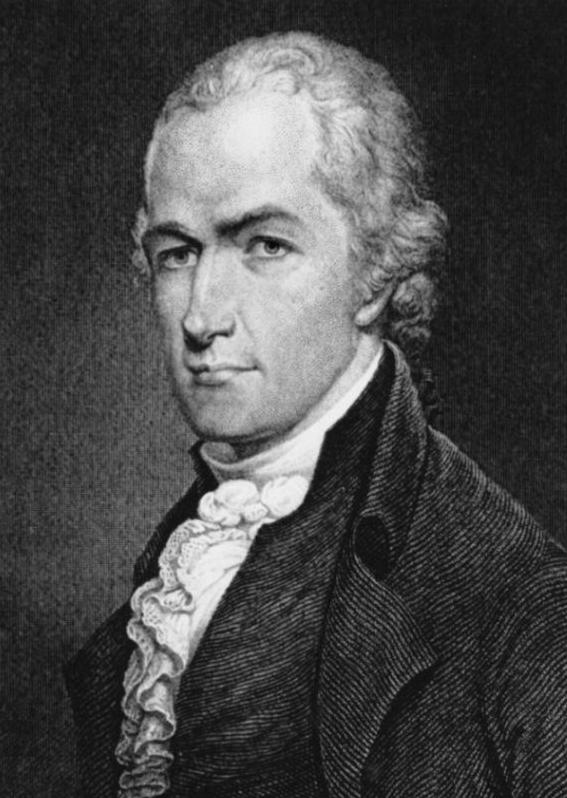
5 minute read
The Presidents of Tennessee


On Presidents Day, the typical focus is on Washington and Lincoln, which is understandable given the historic role these two presidents played in our national history. Tennesseans, however, should use the holiday to recount the contributions of our fellow statesmen who have served as President of the United States: Andrew Jackson, James Polk, and Andrew Johnson.
These individuals each have a record of accomplishment—including the good, the bad, and the ugly. Tennessee history is our history. Ignoring or rewriting our past is a disservice to future generations who will seek to grapple with some of the same societal and ethical issues that faced our three Tennessee presidents. In looking at these three men, we can preserve their memory, and hopefully learn from their actions and their failures.
The Bad: Andrew Jackson (1829-1837) Serving as the 7th president, Andrew Jackson was the first Tennessean to occupy the White House, besting John Quincy Adams in a contentious election. Jackson’s record and accomplishments as president are a mixed bag, at best—this attorney, planter, slave-owner, land speculator, soldier, senator, and then finally president definitely made his mark.
Starting on a high note, giving Jackson credit for what is likely his greatest accomplishment: defending the Gulf coast in the final days of the War of 1812. The British were attempting one last maneuver to defeat the newly established US and landed a large army with the goal of taking New Orleans. Jackson, undermanned and unprepared, made deals with local pirates, enlisted black soldiers, and battled the British up the Mississippi River. Though the Treaty of Ghent was already signed, Jackson helped achieve this final important victory against the British.
While recovering from his battle wounds in 1822, Jackson began to follow national politics once again, and criticized the Monroe administration and the Second Bank of the US as corrupt. Then, he rejoined the US Senate and relaunched his political career. His views were embraced with populist fervor as he railed against the corrupt elites running Washington. In 1828, Jackson supporters coalesced around (continued on page 14)
him forming the Democratic Party, and elevated him to the White House.
Notoriously, Jackson turned on the Cherokee allies he fought beside in the War of 1812 when gold was discovered on the land they were settling. The result was the “negotiated” treaties and forced march along the Trail of Tears in 1838. In the modern vernacular, it would be hard not to describe this as anything other than ethnic cleansing. His enactment of the Tariff of 1828, which nearly led to a small civil war with South Carolina, was peacefully resolved, though, and Jackson asked Congress to give him the authority to enforce the Tariff by force.
If he had any second thoughts about slavery, he would certainly find allies decrying the practice in his own times. Instead, Jackson seems to have not been bothered by the slave trade. Brevity demands only a cursory review of these scandals—not to mention Jackson’s continued ownership of slaves after the trade had become

las.org/breakfast-of-champions-2020/
widely criticized and eventually ended, and lead to a dim view of Jackson. His brash and combative nature might have served him well in defeating the British, but not as much while serving as President. Though many Americans question his place on the $20 bill, none can deny his significant legacy.
The Good: James Polk (1845-1849) Hailing from present-day Maury County, James Polk, the 11th president was both the first dark horse candidate, and one of the most successful presidents in American history. Polk, not one to over-promise, was the last president—if not the only one—to accomplish each of his campaign promises: (1) to reestablish an independent treasury; (2) to reduce tariffs; (3) to settle the Oregon boundary dispute with Great Britain, and; (4) to acquire California, New Mexico, and the interior west. President Tyler managed to preempt Polk’s effort annex Texas by completing the process just days prior to Polk’s inauguration.
Breakfast of Champions



Featured Speaker Michael Oher Baltimore Raven and Tennesssee Titan, Author of “I Beat the Odds: From Homelessness, to The Blind Side, and Beyond”
Shortly after taking office, Polk entered into negotiations with British Foreign Secretary, Lord Aberdeen, over the Oregon boundary dispute and worked out the compromise which set the boundary and the 49th Parallel, resulting in the Senate approving the 1846 Oregon Treaty and the inclusion of what is now Idaho, Montana, Oregon, Washington, and Wyoming into the territory of the US. Congress passed legislation to reduce the protectionist tariffs of 1842 and to restore the independent Treasury. Polk had accomplished his objectives in record time.
Unfortunately, the annexation of California and New Mexico were fraught with difficulty, culminating in the Mexican American war. In November of 1845, Polk secretly sent John Slidell as a special envoy to Mexico City, but the Mexican government refused to receive him. After a bit of deception from Mexican President Antonio Lopez de Santa Anna, US forces defeated Mexico in September 1847, and the peace negotiations added California, Nevada, Utah, and parts of Arizona, New Mexico, Colorado, and Wyoming to the US. Polk had successfully expanded the nation by 1.2 million square miles.
Polk kept his final promise, only serving one term in office, and left office in March 1849. He and his wife, Sarah, returned to Tennessee. Polk serves as an example of practicality in presiding over our country. Though the Mexican American war has its fair share of criticism, Polk stands out as a president who has had a lasting historical and geographic impact on the United States. However, despite (continued on page 22)







